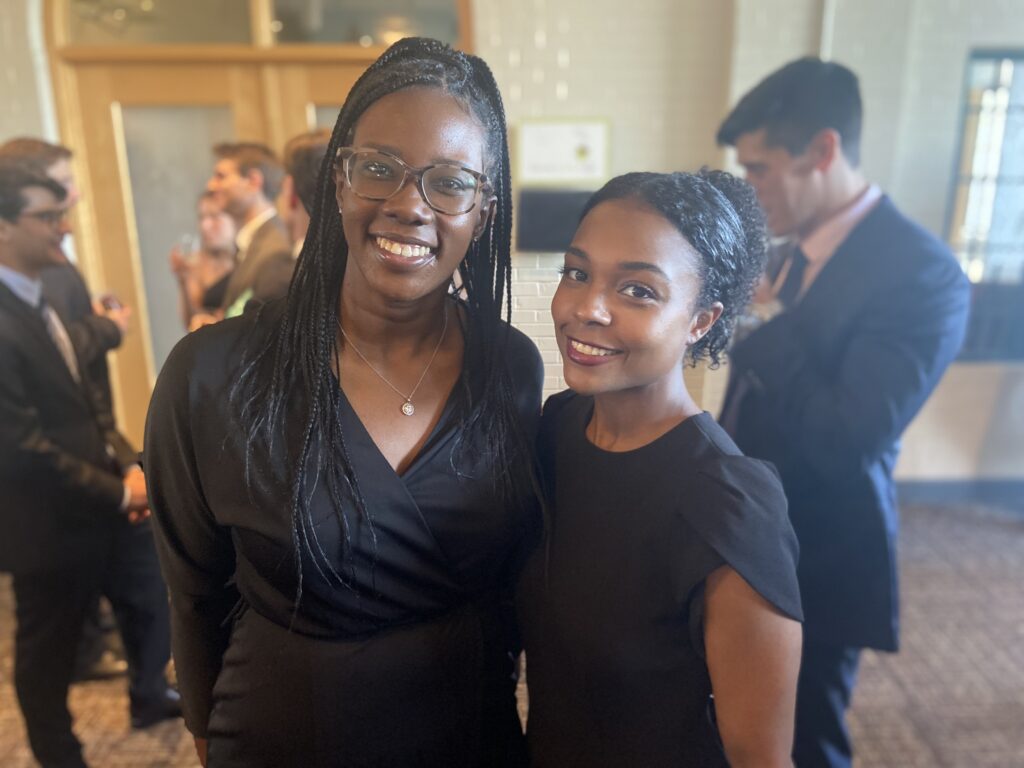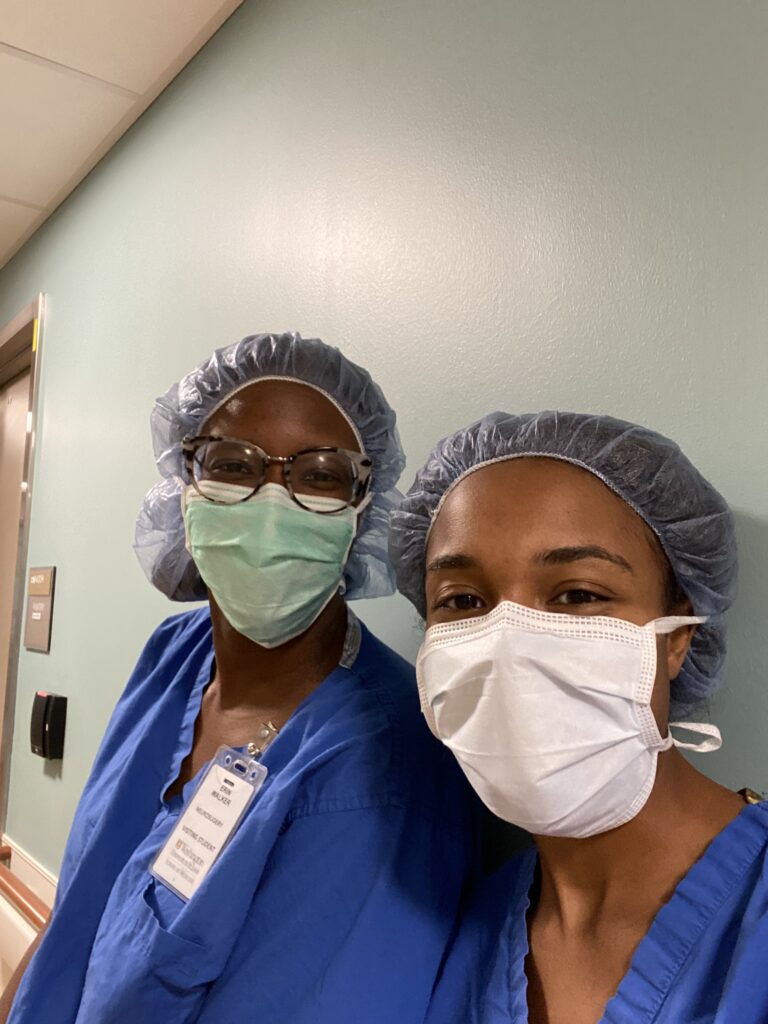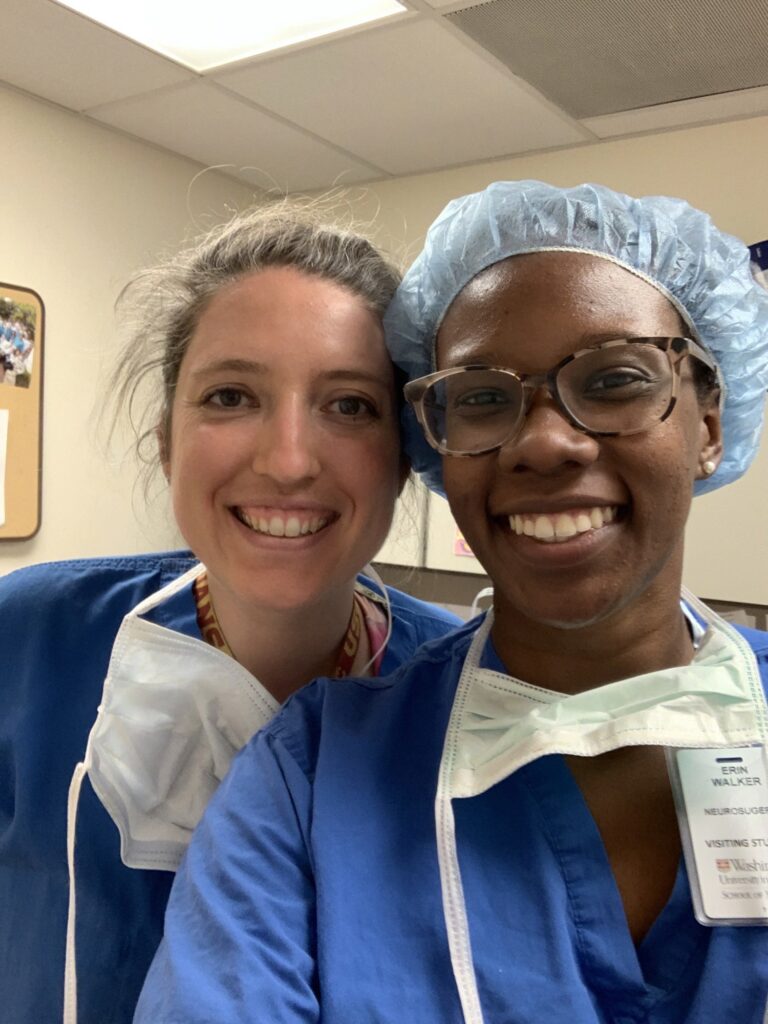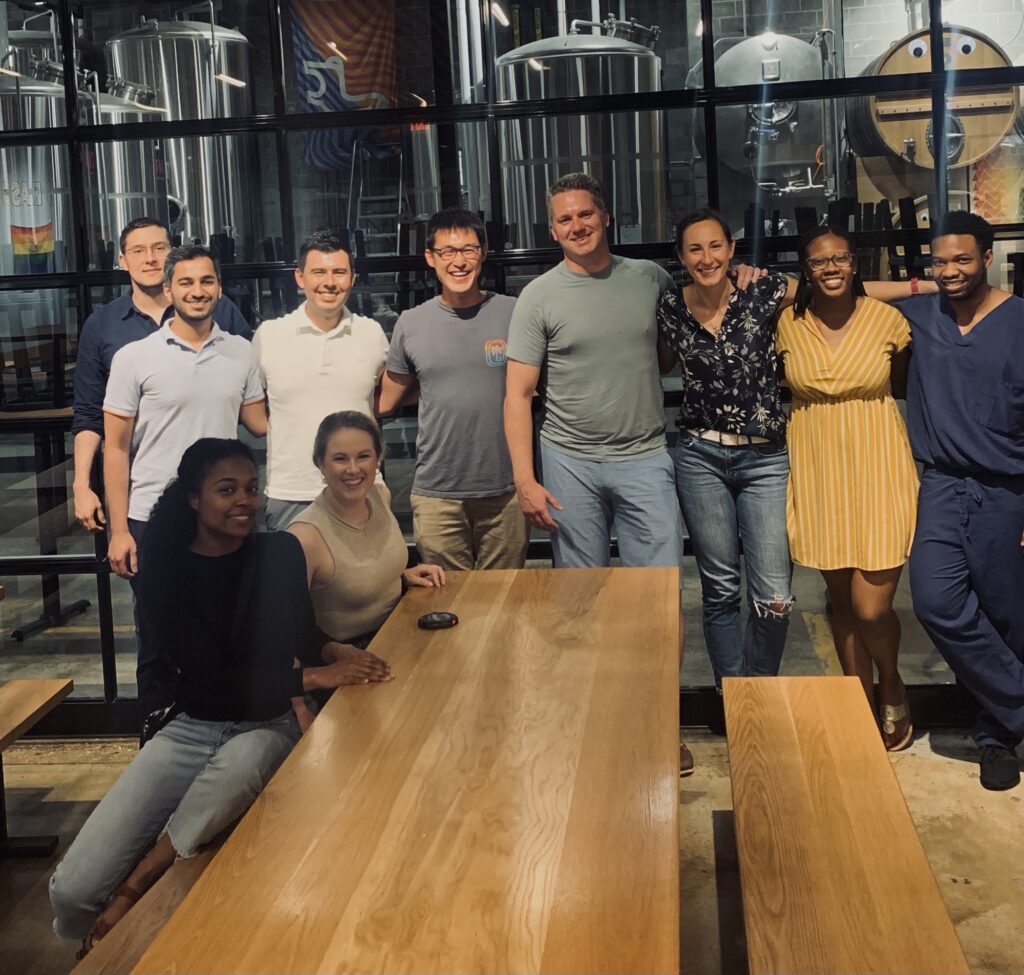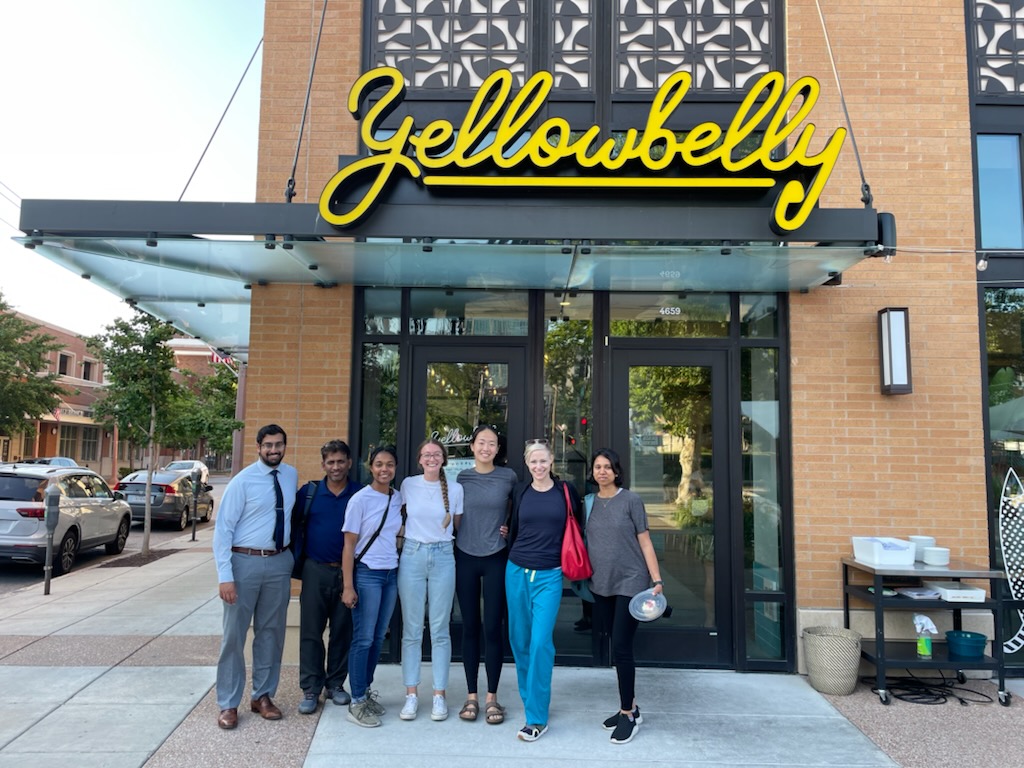This past summer, the Department of Neurosurgery at Washington University School of Medicine in St. Louis partnered with Johns Hopkins and the University of Miami MILLER School of Medicine to offer the Black Lives Matter Summer Scholarship. The aim of the scholarship is to give Black medical students early exposure and research experience in the fields of neuroscience and neurosurgery.
Medical students Erin Walker and Jordann Wilson spent nine weeks in the Department of Neurosurgery at WashU, getting a feel for what life as a neurosurgery resident looks like. We caught up with the med students to find out how they benefited from this program, as well as any challenges they faced.
What was the most valuable aspect of this experience?
Erin Walker (MS2, University of South Carolina School of Medicine): Participating in research and learning from the attendings and residents was incredibly valuable for me this summer. I am extremely grateful I had the chance to have insightful conversations with so many people in the neurosurgery department and so many learning opportunities while conducting clinical research and being in the OR and clinic.
Jordann Wilson (MS2, Drexel University College of Medicine): The most valuable aspect of this experience was meeting and learning from resident physicians, attending physicians, and getting insightful advice about the journey to becoming a neurosurgeon. Another valuable aspect was having the opportunity to sit in teaching conferences, resident curriculum conferences, and case conferences and seeing what a day in the life looks like for neurosurgery residents.
Which skills did you develop that you will take with you as you continue your medical training?
EW: This summer gave me the chance to work on my scientific writing and critical thinking skills. I left WashU with the ability to use “R” and other statistical software which was a pleasant surprise, and something I know will be beneficial throughout my medical career.
JW: As a preclinical student with limited patient experience, I learned so much from observing the residents and attendings and their interaction with their patients and the healthcare team. I learned how to navigate Electronic Medical Records (EMR), which is a skill I will be expected to have within the coming years as a medical student. I also acquired an in-depth understanding of various pathologies from a literature review I did on my research project. I also learned how to scrub into a surgery!
Has this experience increased your interest in neurosciences?
EW: It absolutely has! This summer showed me the emphasis on evidence-based medicine and the opportunity for lifelong learning in neurosurgery, and really piqued my interest in this field.
JW: Absolutely. Before this summer research program, I did not have any clinical experience or exposure to the field of neurosurgery, and consequently, I did not feel equipped with the resources needed to fully gain an interest; however, with the encouragement and guidance of every physician I have encountered, I have exponentially increased my interest in the field.
What activities did you enjoy doing in St. Louis during your free time?
EW: St. Louis has some cool spots! My favorite activities included going to Shakespeare in the Park, art museum, botanical garden, and seeing plays at the Muny.
JW: As a midwestern native outside of the St. Louis area, I enjoy mid-summer strolls at Forest Park. I also enjoyed the Shakespeare plays and Muny performances (top notch)! Other fun activities included the St. Louis Art Museum and paddle boating!
What challenges did you have to overcome during this program?
EW: For me, this summer was filled with many firsts. This was my first time ever seeing neurosurgery, first time conducting clinical research, first time working with animal models and even my first time in Missouri. Amongst it all, my biggest challenge was overcoming my own self-doubt and fear of not being good enough or being able to achieve the goals I set for myself this summer. But I had some amazing mentors who supported me and dedicated time to making sure I was successful from start to finish and that made the difference.
JW: I came into the BLM summer research program with no research experience; subsequently, my learning curve was steep. I had to learn to be comfortable with being uncomfortable and being proactive with tasks that were given to me. I was able to overcome those challenges mostly by asking for help when needed and being receptive to constructive feedback.
Any words of advice for future BLM summer scholars at WashU?
EW: Come ready to work hard, be teachable, and say yes to every opportunity!
JW: My advice would be to ask questions. Everyone is eager to teach you and there is no such thing as a bad question. Enjoy the experience because the nine weeks fly by. Never be afraid to ask for help. Most importantly, set goals for what you would like to accomplish over the weeks, and have fun!
